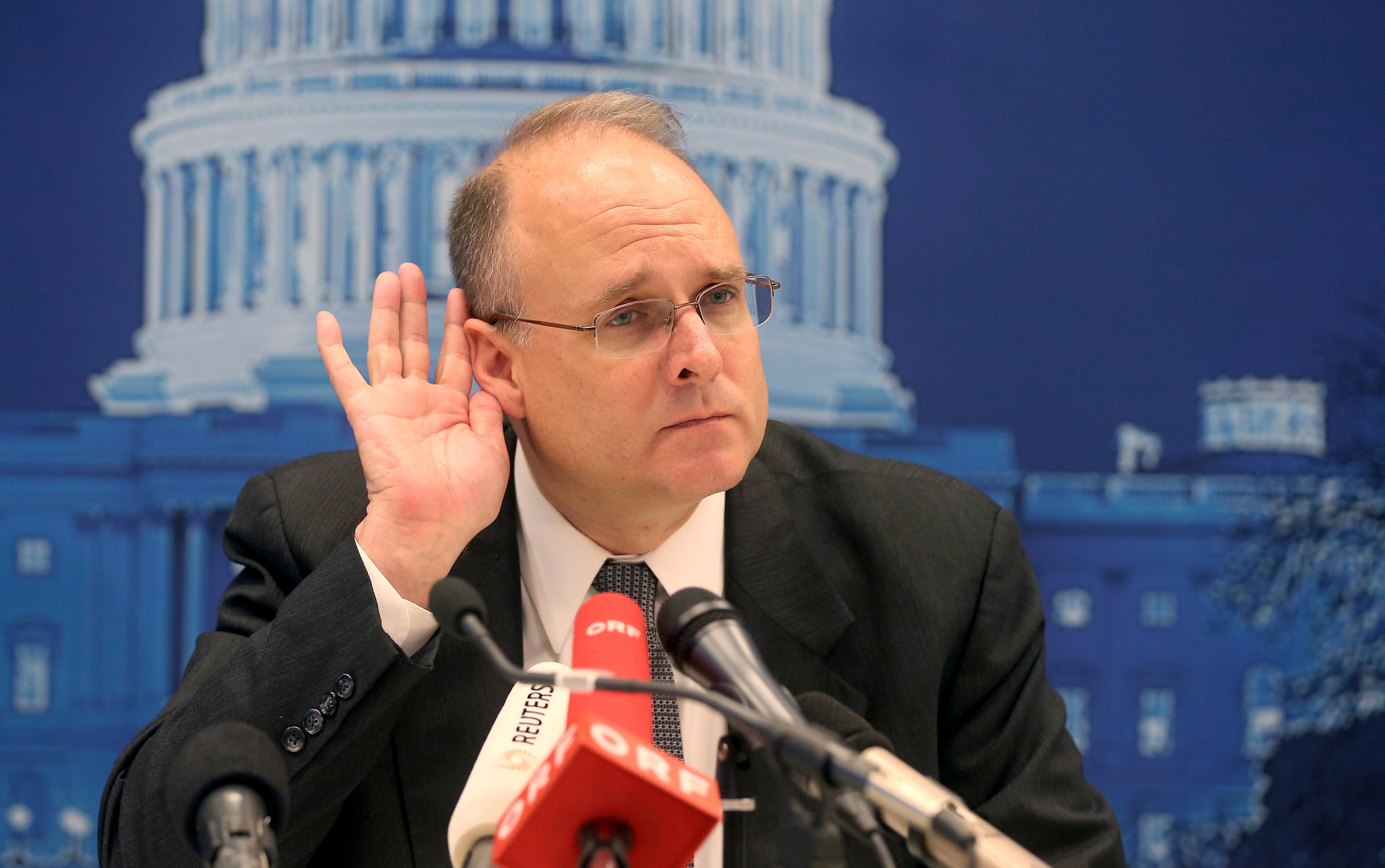US, Russia said close to deal on nuclear warhead freeze
U.S. and Russian negotiators have agreed in principle to freeze their nuclear warhead stockpiles in a bid to salvage their last remaining arms control pact before it expires next year

Your support helps us to tell the story
From reproductive rights to climate change to Big Tech, The Independent is on the ground when the story is developing. Whether it's investigating the financials of Elon Musk's pro-Trump PAC or producing our latest documentary, 'The A Word', which shines a light on the American women fighting for reproductive rights, we know how important it is to parse out the facts from the messaging.
At such a critical moment in US history, we need reporters on the ground. Your donation allows us to keep sending journalists to speak to both sides of the story.
The Independent is trusted by Americans across the entire political spectrum. And unlike many other quality news outlets, we choose not to lock Americans out of our reporting and analysis with paywalls. We believe quality journalism should be available to everyone, paid for by those who can afford it.
Your support makes all the difference.U.S. and Russian negotiators have agreed in principle to continue freezing their nuclear warhead stockpiles in a bid to salvage their last remaining arms control pact before it expires next year, a person familiar with the talks said Friday.
The person said it’s not yet clear if the agreement for a freeze will succeed or translate into an extension of the New START treaty that expires in February. But, if it works, the person said an agreement could be announced before the Nov. 3 presidential election with an eye toward extending the accord and eventually bringing China into it, a longtime Trump administration demand.
The person said President Donald Trump and Russian leader Vladimir Putin have signed off on the freeze, but negotiators still need to iron out details, including compliance and verification issues. The person spoke to reporters after the last round of U.S,-Russia arms control talks in Helsinki this week.
The person, who was not authorized to discuss the negotiations publicly and spoke on condition of anonymity, said follow-up discussions between Washington and Moscow would take place next week. The Russians have been told that if a freeze is not agreed to in the coming weeks, the United States may harden its conditions.
Word of a potential freeze comes as Trump is seeking foreign policy victories during a difficult reelection campaign against former Vice President Joe Biden, who has vowed to extend New START even without Chinese participation.
An announcement ahead of the election could raise eyebrows, coming as U.S. intelligence officials say Russia favors Trump and has been working to denigrate Biden.
The person familiar with the negotiations said Nov. 3 was not a drop-dead date for a freeze agreement with Russia and stressed that the Trump administration would continue to negotiate no matter what the result of the election. But the person said the U.S. would be looking for additional Russian concessions should negotiations drag out beyond the vote.
Currently, the U.S. envisions a broad cap on nuclear warheads under which the numbers of multiple weapons systems could be adjusted with some flexibility, according to the person.
After the last talks in Helsinki on Monday, lead U.S. negotiator Marshall Billingslea, Trump’s special envoy for arms control, said the meeting had yielded “important progress.”
That meeting was a follow up to earlier discussions between Billingslea and his Russian counterpart, Deputy Foreign Minister Sergei Ryabkov, in Vienna and talks between the U.S and Russian national security advisers in Geneva.
But Russia has had a more skeptical view of the talks, with Russian Foreign Minister Sergey Lavrov on Monday accusing Washington of “unilateralism.” He said the New START treaty would likely cease to exist because the conditions the U.S. has put forward for extending it "don't take into account our interests or the experience of many decades when arms control has existed to mutual satisfaction.”
Russian diplomats have repeatedly emphasized that Moscow considers the limits on launch platforms — missiles, bombers and submarines — much more important than the restrictions on the number of warheads. Russia likely would be unwilling to accept a separate freeze on the number of warheads unless it is part of a full-fledged deal.
—-
Associated Press writer Vladimir Isachenkov in Moscow contributed.